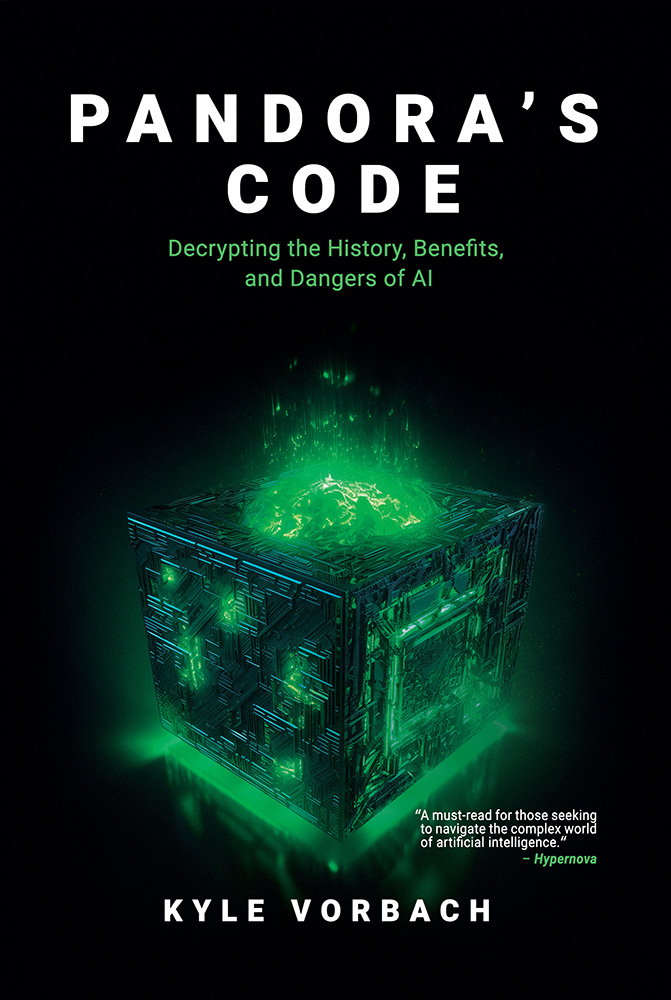Filmmaker Focus: To kick things off, let’s talk about your thought-provoking film, “How I Faked My Life With AI.” What inspired you to delve into this specific project?
Kyle Vorbach: The inspiration really stemmed from a basic need: I wanted a new profile picture but didn’t have anyone to take it for me. It struck me how AI could be used to fill that gap, and that spiraled into the entire concept of faking an entire life online. I also wanted to showcase the blurring line between reality and virtual existence, especially when it comes to social media.
Filmmaker Focus: How have your friends and family reacted to finding out their interactions with “you” were sometimes with an AI version?
Kyle Vorbach: Their reactions were priceless and somewhat unsettling. It made them question not just the AI’s capabilities but also how they perceive identity and authenticity online. It’s been a conversation starter about the ethics and implications of AI, to say the least.
Filmmaker Focus: “How I Faked My Life With AI” uses a documentary style. Was it a conscious choice to make it appear as ‘real’ as possible?
Kyle Vorbach: Absolutely. The documentary style added an extra layer of believability and also served as a medium to discuss this complex issue straightforwardly. I wanted to capture raw, genuine moments, especially when revealing the truth to my friends and family, to highlight the emotional impact of AI-fabricated realities.
Filmmaker Focus: Your film led to some strong reactions, including on Reddit, where you got banned from a subreddit. What do you make of these extreme responses?
Kyle Vorbach: It was both fascinating and alarming. The intense reactions only proved how contentious and provocative the subject matter is. While some conspiracy theories were far-fetched, they did highlight the public’s uncertainty and skepticism toward AI, making the film’s message even more relevant.
Filmmaker Focus: Transitioning to your book, “Pandora’s Code: Decrypting the History, Benefits, and Dangers of AI,” it seems to offer a broad view of AI’s history and implications. How does the book extend the conversation you started with your film?
Kyle Vorbach: The film scratched the surface, exposing the power and dangers of AI in our daily lives. “Pandora’s Code” goes deeper, exploring the historical evolution, the ethical conundrums, and the various industries AI is transforming. I wanted to offer a comprehensive look into this revolutionary yet potentially perilous technology.

Filmmaker Focus: What challenges did you face while shifting from filmmaking to writing a book?
Kyle Vorbach: It’s a different beast altogether. While a film has visual and auditory elements to convey its message, a book relies solely on text to engage the reader. I had to focus more on research, textual storytelling, and ensuring that the complex topics were accessible without being overly simplified.
Filmmaker Focus: In the book you delve into the origins of AI, going as far back as ancient myths that touch upon humanity’s fascination with creating intelligent beings. Could you talk a bit about how these myths set the stage for our modern pursuit of AI?
Kyle Vorbach: I found it incredibly interesting to explore these ancient myths because they show just how far back our fascination with creating intelligent life goes. These aren’t new questions or new ambitions; they’ve been a part of the human story for centuries. I think there’s something both humbling and inspiring about realizing that the questions we’re asking today about AI, about ethics, and about the limits of human ingenuity have roots that go back millennia. Including these myths in “Pandora’s Code” was my way of acknowledging that this pursuit isn’t just a product of modern technology but is deeply ingrained in human curiosity and ambition. It also provided a fascinating lens through which to view the trajectory that has led us to our current relationship with AI.
Filmmaker Focus: You’ve mentioned that “Pandora’s Code” also discusses the dark side of AI. What do you think are some of the biggest ethical dilemmas we face in the AI landscape today?
Kyle Vorbach: The ethical dilemmas surrounding AI are vast and often intertwined with other issues, such as data privacy, job displacement, and even questions of existential risk. One of the most pressing concerns is biased algorithms, which can perpetuate systemic inequities when used in settings like criminal justice or hiring. Additionally, the ethical considerations around AI in warfare and surveillance are enormous. On a more philosophical level, there’s the question of what happens when AI becomes advanced enough to mimic human-like consciousness. Does it then earn ethical considerations of its own? These are just a few examples, but they underscore why it’s critical to engage with the ethical complexities of AI now, before they become overwhelming.
Filmmaker Focus: Who is the intended audience for “Pandora’s Code”?
Kyle Vorbach: I aimed to make “Pandora’s Code” accessible to anyone interested in the future of AI and its impact on society. Whether you’re a tech enthusiast or just a curious individual, the book offers insights that are valuable to a broad audience.

Filmmaker Focus: You’ve showcased your work at festivals like Tribeca and Seattle International Film Festival. How do these platforms amplify the messages in your work?
Kyle Vorbach: Festivals like Tribeca and Seattle International provide a larger stage and a more diversified audience, amplifying the reach and impact of my work. These festivals bring together like-minded individuals who are passionate about the subjects I’m exploring, facilitating conversations that can instigate real change.
Filmmaker Focus: Lastly, tell us a little bit about your podcast “Beyond the Box: The Pandora’s Code Companion Podcast.” What motivated you to start a podcast?
Kyle Vorbach: The decision to venture into podcasting came from an observation that traditional forms of media like books aren’t as accessible to everyone anymore. To be blunt, I don’t think a lot of people read as much as they used to. We live in a fast-paced world, where information is consumed in bites and snippets, often on the go. Podcasts are uniquely suited for this landscape. They allow people to engage with complex topics like AI while they’re commuting, working out, or doing household chores. So, in a sense, the podcast is my way of meeting people where they are, making the conversation about AI’s role in society as accessible as possible.
Pandora’s Code: Decrypting the History, Benefits, and Dangers of AI is on sale on Amazon now.








